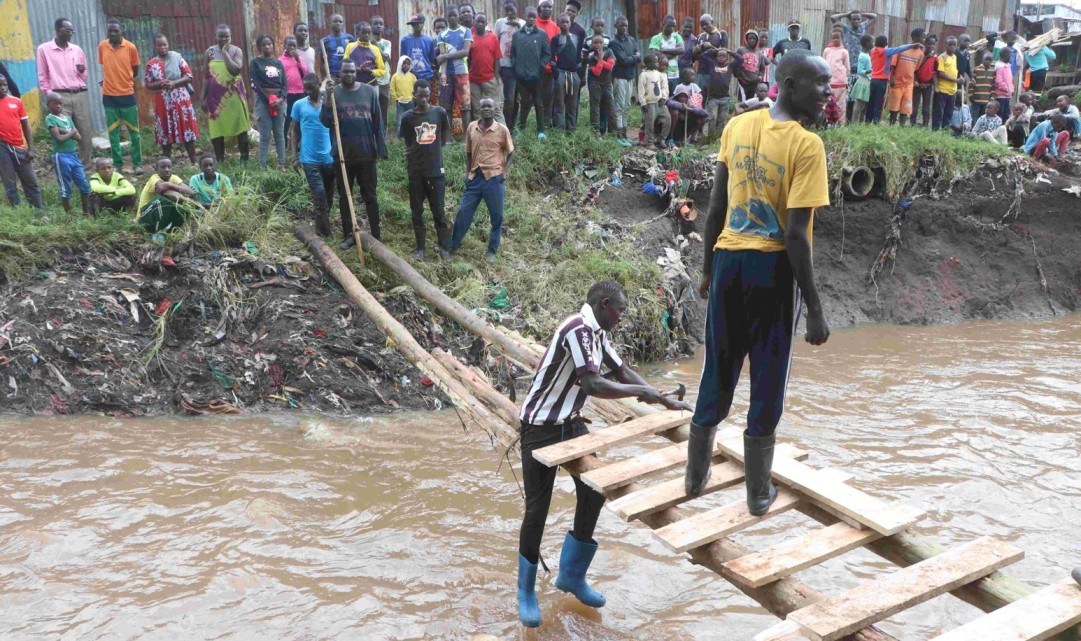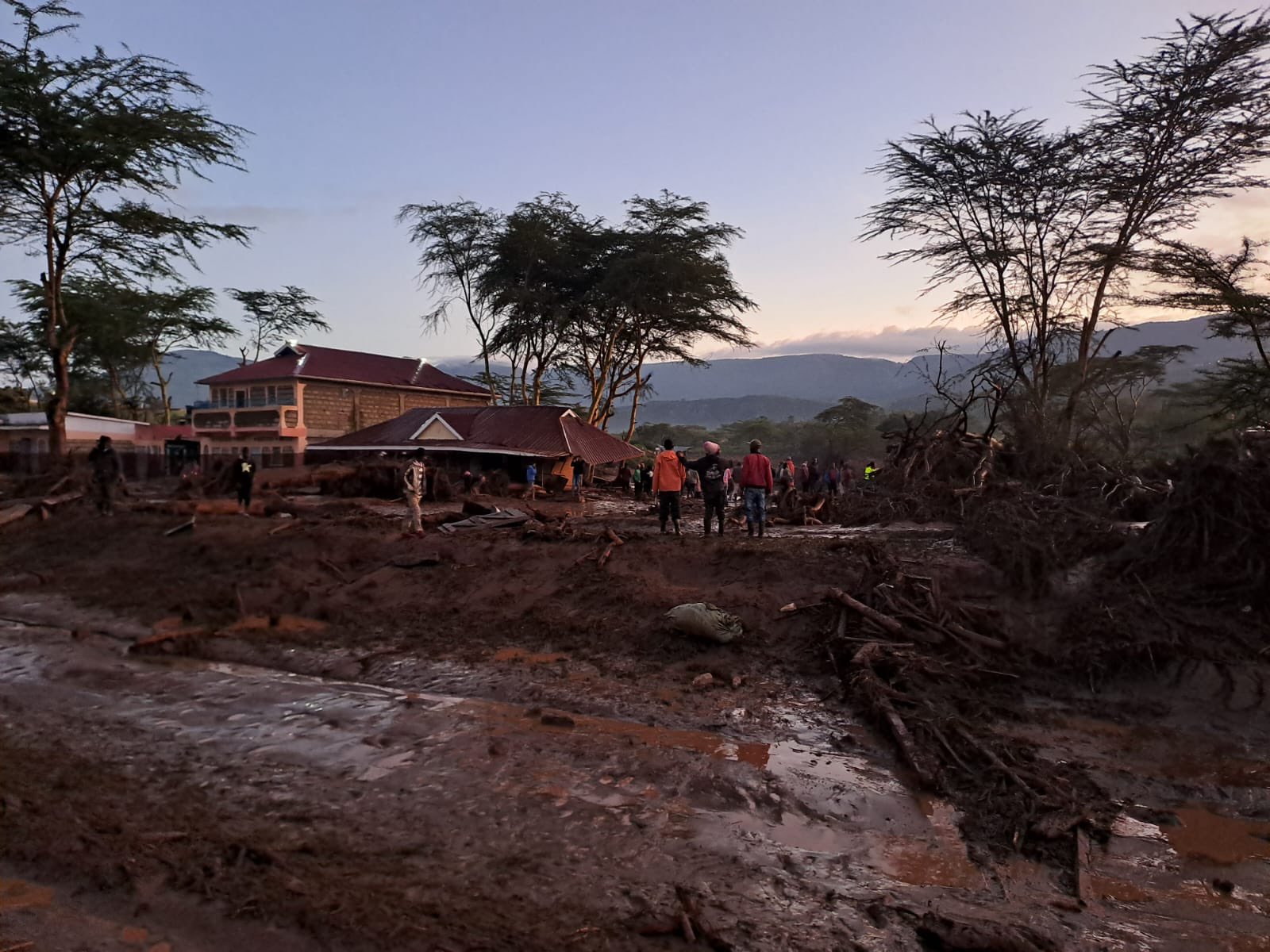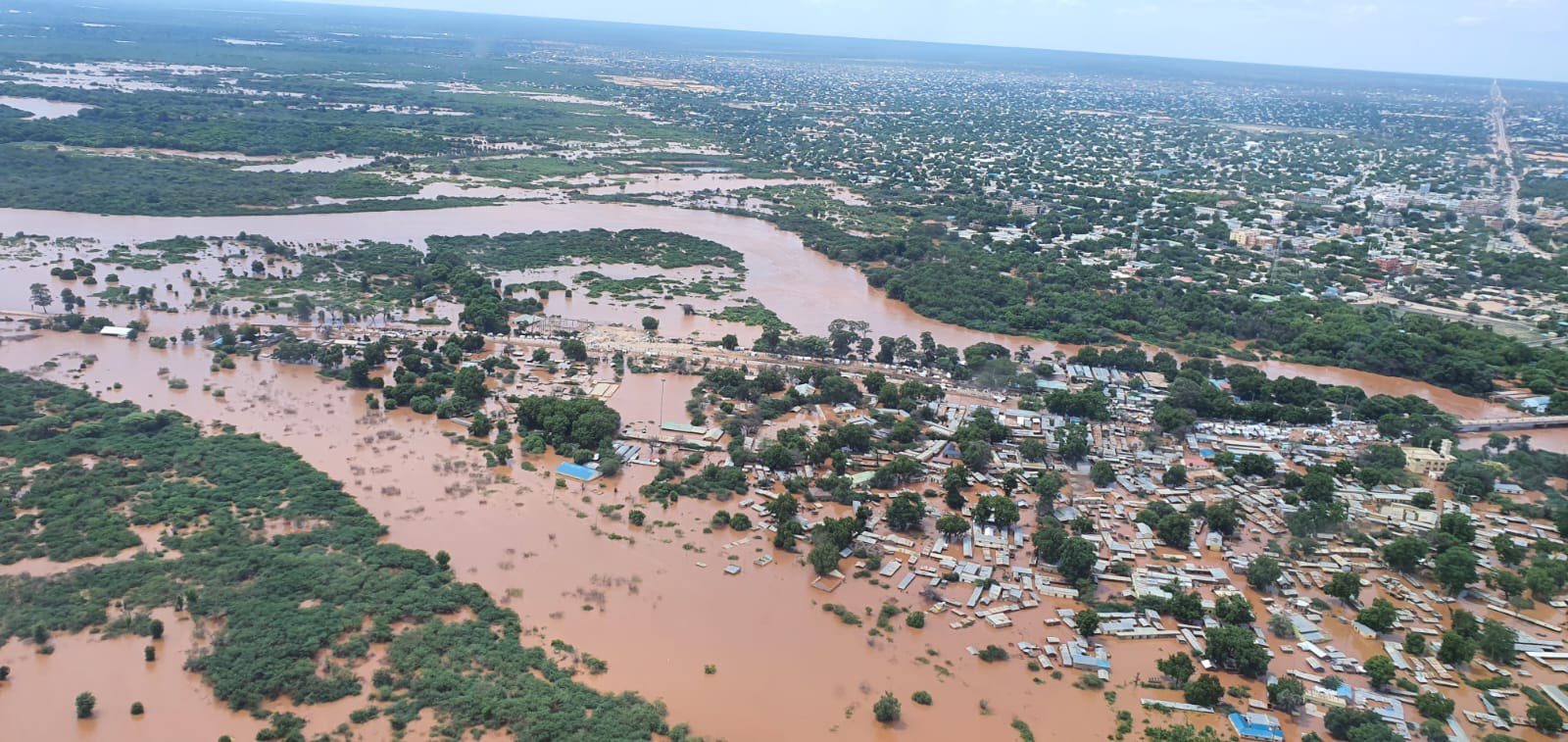Kenya floods: Raila criticises Ruto govt for lack of preparedness

The opposition leader says the government is failing yet it presents itself as a champion of climate change issues.
President William Ruto's Kenya Kwanza government is unprepared to handle Kenya's flood crisis, opposition chief Raila Odinga has said, noting the heavier-than-usual rains across the country have exposed its shortcomings.
In a statement on Tuesday, the Azimio la Umoja One Kenya Coalition leader noted that the government is failing yet it presents itself as a champion of climate change issues.
More To Read
- Saboti MP Caleb Amisi warns ODM may not survive 2027 after by-election struggles
- Raila Odinga's sister Beryl Achieng dies
- Why fight over ODM threatens party’s future, Odinga dynasty - analysts
- Oburu Oginga declares firm grip on ODM, promises to lead in Raila’s footsteps
- Why ODM should convene NDC meeting over broad-based pact with Ruto- Winnie Odinga
- ODM at 20: Babu Owino warns of mass action over cost of living, questions new appointments
"We must confront the emergency of our failure to learn," Odinga said, further noting that no preparations were made despite a warning by the Kenya Meteorological Department
"The destruction caused by the raging floods across the country was overwhelming, heartbreaking, and unbelievable. Its impact will be far-reaching and long-lasting. Hundreds of thousands across the country have suffered devastating losses and will face enormous challenges in the weeks, months and years ahead. "
As of Tuesday, the number of deaths from the heavy rains and floods was 169, as confirmed by the Interior ministry, which also announced that 30,099 families—around 150,495 people—had been displaced.
"We continue to extend our deepest sympathies to those who are suffering as a result of this tragedy. We pray for and wish success to those involved in difficult search and rescue missions in shifting waters and storms across the country," Odinga said.
He assured those affected that efforts were underway to mobilise support, both within his networks and through fundraising events organised by party leaders.
 The scene after a dam in Old Kijabe burst, flooding the nearby Mai Mahiu Town, Naivasha. (Photo: Handout)
The scene after a dam in Old Kijabe burst, flooding the nearby Mai Mahiu Town, Naivasha. (Photo: Handout)
Odinga also encouraged financial donations for national relief efforts, particularly through reputable organisations like the Kenya Red Cross Society.
The opposition leader further emphasised the need for accountability and a reordering of priorities in response to the floods, highlighting failures in planning and infrastructure investment.
He called on the government to prioritise the needs of low-income citizens and ensure clarity in response and incident management systems.
Odinga also called for improved communication channels and coordination among agencies and levels of government to deliver better services and end the confusion and duplication of roles.
"We are calling on the government to perfect the communication channels with all who have responsibilities in the unfolding situation to enable agencies and the two levels of government to deliver better, faster and more efficient services," he said.
Mass destruction
Floods have caused mass destruction across Kenya, with the recent overflow of Masinga and Kindaruma dams shedding light on the government's failure to protect residents living around dams, despite earlier assurances of safety measures and cases of flooding in the past.
The two are among the Seven Forks Dams in the lower Tana region, which are known for power generation and mitigating flooding downstream during rainy seasons.
Masinga flows into the Tana River, which has already broken its banks, displacing hundreds of residents of Garissa town and neighbouring Mororo village in Tana River.
Residents of Vumbi, Windsor, Bulla Nyuki, Bulla Punda, Kamor, and Sheikh were forced to move after their houses were submerged.
Another tragedy took place on Sunday, when a boat transporting 43 people capsized in Mororo, resulting in the deaths of at least seven people.
 An aerial view of Tana River showing extensive flooding on April 28, 2024. (Photo: Handout)
An aerial view of Tana River showing extensive flooding on April 28, 2024. (Photo: Handout)
Ironically, Tana River and Garissa have not experienced any heavy rains. The flooding in these areas has been caused by events far beyond the people's control, such as the overflow of the dams.
Interior Cabinet Secretary Kithure Kindiki issued a warning on April 17, 2024, about the potential dangers of dam spillover due to heavy rainfall.
Despite this alert, no adequate contingency plans were put in place to protect communities downstream.
The Tana and the Athi Rivers Development Authority (TARDA) attempted to reassure the public, stating that necessary flood control measures were in place to avert spillage risks.
Despite TARDA's claims of safety measures, the lack of accountability and preparedness on the part of the government has raised serious questions about who will bear the financial and moral responsibility for the deaths and losses incurred.
CS Kindiki further directed County Security and Intelligence Committees (CSICs) across the country to inspect all public and private dams and water reservoirs in their jurisdictions within 24 hours, but this directive was too late.
The committees will also recommend cases where compulsory evacuation and temporary resettlement orders are to be issued.
Top Stories Today












































